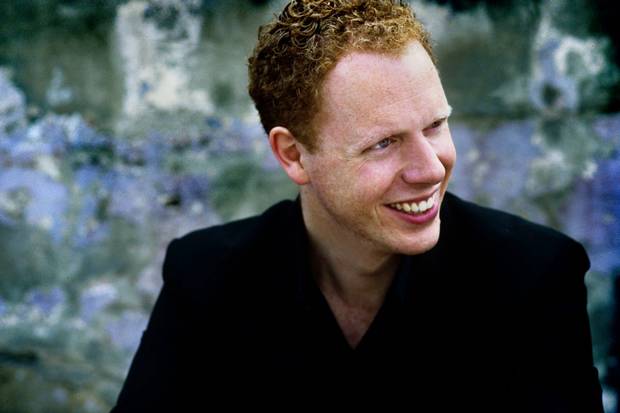Wagner 200: Janice Watson, Joseph Middleton, Kings Place | reviews, news & interviews
Wagner 200: Janice Watson, Joseph Middleton, Kings Place
Wagner 200: Janice Watson, Joseph Middleton, Kings Place
There's more to Wagner's songs than the Wesendonck Lieder, but Schumann is more human

It only takes a few great Lieder by Schumann and Liszt to show the kinds of songs Wagner didn’t, or couldn’t, write. Very well, so the rarities in this programme were whimsies he composed in his youth, but even the Wesendonck Lieder, sole voice-and-piano masterpieces of his maturity, don’t show much concern for the little details of humanity.
The evening had a relaxed air about it, mostly thanks to Watson’s willingness to engage between the songs. She was perhaps over-apologetic about what young Wagner in Paris wasn’t, and no scholarship lurked behind the narrative, but best to get acquainted if you and your pianist are the audience’s only company for the evening. Exchanging youthful bloom these days for bigger, Wagnerian stops, Watson took time to crank up Gretchen’s spinning wheel in one of two excerpts from Wagner’s Faust music of 1833. The other, the maiden’s prayer, is spoken melodrama against generic tremulous accompaniment, so a mere curiosity – but for it the soprano engaged her lower speaking register very skillfully.
 You could make a case for a common theme in these early songs of youth versus decay, very neatly contrasted in the setting of a rather odd poem by Georg Scheurlin where a fir tree tells a young boy in a boat that it will be furnishing the boy’s coffin. But the voice never fuses very interestingly with the piano. When Schumann's first Liederkreis set (Op. 24) nudged Wagner out of the way and Middleton started making wonderfully nuanced connection between several of the songs (the pianist pictured above by Sussie Ahlburg), we knew we were in another world, and this time hearing the composer’s true voice, which Schumann discovered so much earlier than Wagner (the two, surprisingly, were born only three years apart).
You could make a case for a common theme in these early songs of youth versus decay, very neatly contrasted in the setting of a rather odd poem by Georg Scheurlin where a fir tree tells a young boy in a boat that it will be furnishing the boy’s coffin. But the voice never fuses very interestingly with the piano. When Schumann's first Liederkreis set (Op. 24) nudged Wagner out of the way and Middleton started making wonderfully nuanced connection between several of the songs (the pianist pictured above by Sussie Ahlburg), we knew we were in another world, and this time hearing the composer’s true voice, which Schumann discovered so much earlier than Wagner (the two, surprisingly, were born only three years apart).
Watson has a nice line in gesture and narrative, but you feel it could go even further. The real treat in the Schumann sequence was the long, calm line of "Ich wandelte unter den Bäumen". By finishing the first half with Wagner’s Mary Stuart setting (in French) rather than Schumann’s late meditations on the same theme, she plunged us instead into what sounded like pure Donizetti posturing. All the more reason, then, to have it "sung in" to the voice; a regal stance might have carried more conviction than regular glances at the music.
Middleton again took the limelight in the elaborate gypsy strains of Liszt’s vivid song-picture "Die drei Zigeuner", followed by ethereal river music. He made the most of the piano part in the Wesendonck settings, conjuring the oppressive atmosphere of the hothouse and the liberation of dreams; but this was Watson’s biggest challenge, and she took it with flawlessly phrased style and the kind of luminous pianissimos which hadn't always worked perfectly for her earlier in the evening. I wonder if these songs can ever be truly moving, but they do separate the classy singer from the ordinary one, and Watson passed the test with radiant colours. Liszt's, rather than Schubert's, setting of nocturnal Goethe, "Über allen Gipfeln Ist Ruh", proved a sensitive, hallowed choice of encore.

rating
Explore topics
Share this article
The future of Arts Journalism
You can stop theartsdesk.com closing!
We urgently need financing to survive. Our fundraising drive has thus far raised £49,000 but we need to reach £100,000 or we will be forced to close. Please contribute here: https://gofund.me/c3f6033d
And if you can forward this information to anyone who might assist, we’d be grateful.

Subscribe to theartsdesk.com
Thank you for continuing to read our work on theartsdesk.com. For unlimited access to every article in its entirety, including our archive of more than 15,000 pieces, we're asking for £5 per month or £40 per year. We feel it's a very good deal, and hope you do too.
To take a subscription now simply click here.
And if you're looking for that extra gift for a friend or family member, why not treat them to a theartsdesk.com gift subscription?
more Classical music
 From Historical to Hip-Hop, Classically Black Music Festival, Kings Place review - a cluster of impressive stars for the future
From quasi-Mozartian elegance to the gritty humour of a kitchen inspection
From Historical to Hip-Hop, Classically Black Music Festival, Kings Place review - a cluster of impressive stars for the future
From quasi-Mozartian elegance to the gritty humour of a kitchen inspection
 Shibe, LSO, Adès, Barbican review - gaudy and glorious new music alongside serene Sibelius
Adès’s passion makes persuasive case for the music he loves, both new and old
Shibe, LSO, Adès, Barbican review - gaudy and glorious new music alongside serene Sibelius
Adès’s passion makes persuasive case for the music he loves, both new and old
 Anja Mittermüller, Richard Fu, Wigmore Hall review - a glorious hall debut
The Austrian mezzo shines - at the age of 22
Anja Mittermüller, Richard Fu, Wigmore Hall review - a glorious hall debut
The Austrian mezzo shines - at the age of 22
 First Person: clarinettist Oliver Pashley on the new horizons of The Hermes Experiment's latest album
Compositions by members of this unusual quartet feature for the first time
First Person: clarinettist Oliver Pashley on the new horizons of The Hermes Experiment's latest album
Compositions by members of this unusual quartet feature for the first time
 Gesualdo Passione, Les Arts Florissants, Amala Dior Company, Barbican review - inspired collaboration excavates the music's humanity
At times it was like watching an anarchic religious procession
Gesualdo Passione, Les Arts Florissants, Amala Dior Company, Barbican review - inspired collaboration excavates the music's humanity
At times it was like watching an anarchic religious procession
 Classical CDs: Camels, concrete and cabaret
An influential American composer's 90th birthday box, plus British piano concertos and a father-and-son duo
Classical CDs: Camels, concrete and cabaret
An influential American composer's 90th birthday box, plus British piano concertos and a father-and-son duo
 Cockerham, Manchester Camerata, Sheen, Martin Harris Centre, Manchester review - re-enacting the dawn of modernism
Two UK premieres added to three miniatures from a seminal event of January 1914
Cockerham, Manchester Camerata, Sheen, Martin Harris Centre, Manchester review - re-enacting the dawn of modernism
Two UK premieres added to three miniatures from a seminal event of January 1914
 Kempf, Brno Philharmonic, Davies, Bridgewater Hall, Manchester review - European tradition meets American jazz
Bouncing Czechs enjoy their Gershwin and Brubeck alongside Janáček and Dvořák
Kempf, Brno Philharmonic, Davies, Bridgewater Hall, Manchester review - European tradition meets American jazz
Bouncing Czechs enjoy their Gershwin and Brubeck alongside Janáček and Dvořák
 Solomon, OAE, Butt, QEH review - daft Biblical whitewashing with great choruses
Even a top soprano and mezzo can’t make this Handel paean wholly convincing
Solomon, OAE, Butt, QEH review - daft Biblical whitewashing with great choruses
Even a top soprano and mezzo can’t make this Handel paean wholly convincing
 Two-Piano Gala, Kings Place review - shining constellations
London Piano Festival curators and illustrious friends entertain and enlighten
Two-Piano Gala, Kings Place review - shining constellations
London Piano Festival curators and illustrious friends entertain and enlighten
 Echo Vocal Ensemble, Latto, Union Chapel review - eclectic choral programme garlanded with dance
Beautiful singing at the heart of an imaginative and stylistically varied concert
Echo Vocal Ensemble, Latto, Union Chapel review - eclectic choral programme garlanded with dance
Beautiful singing at the heart of an imaginative and stylistically varied concert
 Scott, Irish Baroque Orchestra, Whelan, RIAM, Dublin review - towards a Mozart masterpiece
Characteristic joy and enlightenment from this team, but a valveless horn brings problems
Scott, Irish Baroque Orchestra, Whelan, RIAM, Dublin review - towards a Mozart masterpiece
Characteristic joy and enlightenment from this team, but a valveless horn brings problems

Add comment